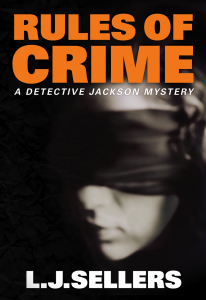 “We’re Dying Out Here”
“We’re Dying Out Here”
That was the subject line of a recent email sent from a reader who’s dying for my next Jackson mystery and was speaking for everyone who’s been waiting all year. It made me feel warm and fuzzy to be wanted, but I also feel guilty about the long wait. This is a one-time delay because my new publisher is producing all new versions and the covers take time.
But Rules of Crime is scheduled for release on Feb. 26, and I believe you can pre-order it from Amazon now. Advance review copies are going out soon, including ebooks to lots of faithful early readers (who write reviews ☺).
In other news: I’ll be telling a funny Holiday story at Planned Parenthood Fundraiser, Friday, Dec. 7 at 8 p.m. at Cozmic Pizza, downtown. The event is $15, and other funny ladies and writers will tell stories as well. In addition, I’m selling print copies of The Sex Club (featuring a PP nurse) for $5 each and all proceeds go to the fundraiser.
Local readers can also see me at the Holiday Market again this year. It’s held Saturday, December 8th, from 10 a.m. to 6 pm. in the atrium at the Fairgrounds in Eugene. If you haven’t seen me since the last holiday market, I’ll have copies of Liars, Cheaters, & Thieves, which came out after the event last year. I may have a few advance copies of Rules of Crime, but I’m not holding my breath. If I get them for sure, I’ll let you know. Lots of other authors and artists will be there too, so come on it and do some holiday shopping.
The next day, December 9th, I’m driving to Portland with Carola Dunn to attend a holiday party at Murder by the Book in Portland (3210 SE Hawthorne Blvd.) I’ll bring whatever books I have left from the market with me. We’ll be in the bookstore from 12:30 to 3, so if you’re in the Portland area and would like to meet me, please stop in and say hello.
Beyond that, I’m signed up for Left Coast Crime in March in Colorado Springs, so put it on your calendar too. It’s a great convention. And I’m working up the nerve to attend Crimefest in Bristol next year!


 A question from my ex-publisher stimulated me think about the pay structure in traditional publishing. The question she asked was: Why couldn’t you sell all those books when you were still under contract? Many factors came into play at the same time to quickly boost my e-book sales. Pricing strategy, volume of books, and massive effort all played a part. But one of the biggest issues
A question from my ex-publisher stimulated me think about the pay structure in traditional publishing. The question she asked was: Why couldn’t you sell all those books when you were still under contract? Many factors came into play at the same time to quickly boost my e-book sales. Pricing strategy, volume of books, and massive effort all played a part. But one of the biggest issues 